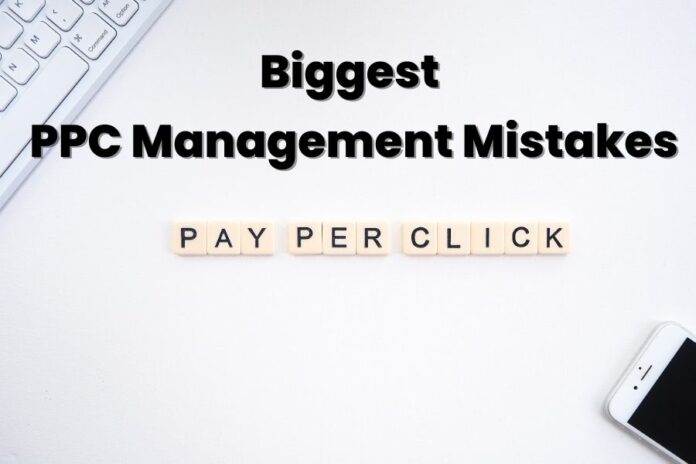The real reason why so many small business owners don’t realise the immense value of PPC (pay-per-click) marketing can yield is simply because they manage their campaigns poorly – and that’s perfectly normal on a first attempt.
Let’s face it: if a PPC management expert—who has built a career in this one specific niche area of the online marketing industry—turned up and tried to do your job with no prior experience, they’d likely make some elementary mistakes as well.
We can’t all be good at everything.
BUT! We can share a list of the biggest PPC management mistakes everybody makes.
They’ll help you dial-in your strategy and see some fruit for your labour.
-
Being too ‘broad’ with your focus keywords
(Using ‘match types’ incorrectly)
There are three keyword match types in PPC. To help you better understand how each one works, we’ll use “men’s clothing” as an example:
- Broad match: your PPC ad will be displayed in a SERP (search engine results page) for a load of variations that loosely (or ‘broadly’) fit the focus keyword (e.g., “women’s clothing”).
- Phrase match: includes your focus keyword and any words that tend to surround it (e.g., “men’s clothing size XXL”).
- Exact match: display your advert only when it includes an exact match of the keyword “men’s clothing”.
Broach match can be a good approach if you are looking to raise your brand awareness and increase the traffic to your website. However, if you want to attract highly qualified leads, you’ll need to use exact matches (perhaps with some phrase match variations) in order to boost your conversions.
-
Not using ‘negative keywords’ in your strategy
Another common issue in PPC management and advertising is failing to utilise ‘negative keywords’. Negative keywords are keywords that you can choose not to target. For example, if you only sell “men’s clothing” and you don’t wish to attract any unqualified traffic you can add words like “woman”, “women’s”, and “ladies” to your negative keyword list.
You can even apply this negative keyword list to your wider campaigns as well.
-
Never using long-tail keywords
A long-tail keyword is a long-form search phrase that almost always includes the searcher’s intent. For example: “men’s urban style clothing size XXL”. That is a very specific long-tail keyword and while the search-volume might be incredibly low, the chances of that keyword converting into business if your website accommodates them will be much higher.
-Short-tail keywords are expensive and highly competitive.
-Long-tail keywords are cheaper and have less competition.
-
Low-quality writing
Click-through rates on PPC ads are notoriously low. Yes, there’s an excellent ROI to be achieved, however, that takes high-class ad writing with compelling visuals. One of the biggest reasons people’s ads fall flat on their face is because business owners and marketers have skimped on their ad writing.
Don’t give into the common misconception that writing ads is easy because there’s a low word count. If you want to resonate with your target audience and make sure that your ads stand out from the rest, grab attention, encourage a click-through, and ultimately lead to conversions, you’ve got to get creative.
-
On-going maintenance
Another common mistake in PPC management is failing to fine-tune your ads. Just because an advert seems finished and is ready to be pushed out into the world it does not mean that it is by any means “complete”.
You should continually split-test and dial-in your ads until you have the perfect message, imagery, and positioning. Keep refining as you go and before long you’ll have it locked down.
Conclusion
The general takeaway is that most people who are new to PPC don’t quite understand just how much work is involved. Unfortunately, simply throwing money at Google won’t make your PPC ads fool-proof. The science involved demands a significant learning curve and an even larger element of trial and error to effectively master this.
Either way, put the time and effort in or delegate your PPC requirements to a dedicated PPC management agency.








![Avast Driver Updater Key 2022 | Activation Key V2.5.9 [Free]- Avast Driver Updater Key 2021](https://vintank.com/wp-content/uploads/2021/02/Avast-Driver-Updater-Key-2021-100x70.jpg)
![Avast Premier Activation Code and License Key [Working] Avast Premier Activation Code and License Key](https://vintank.com/wp-content/uploads/2021/09/Avast-Premier-Activation-Code-and-License-Key-100x70.jpg)
